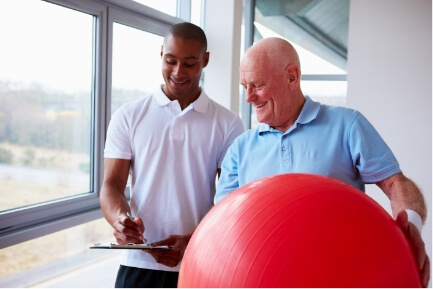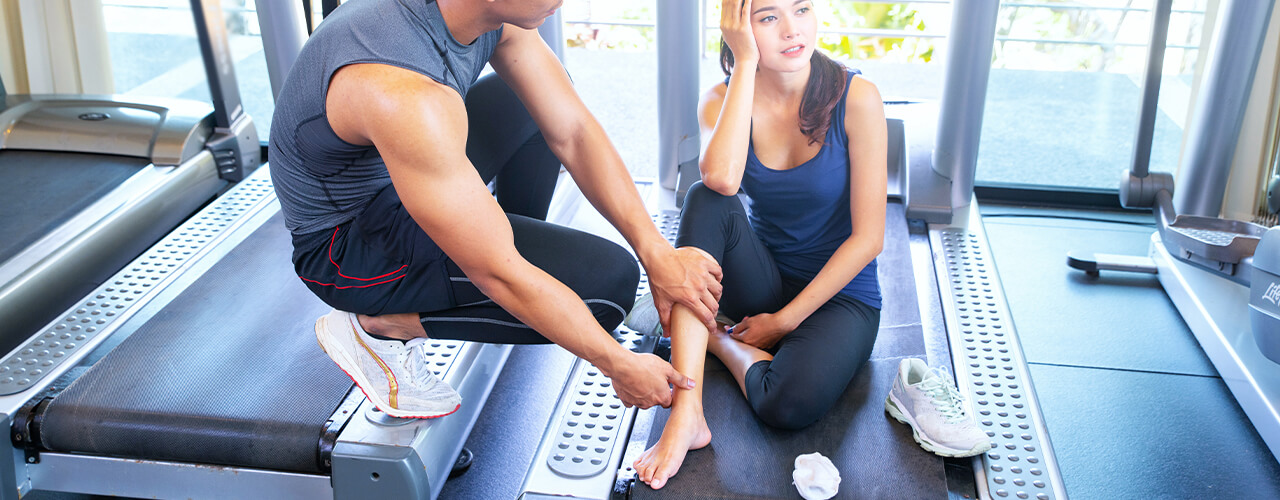The answer is Yes and No.
No, in that arthritis and joint pain can be a very complicated condition to treat and you might need the help of your doctor or even surgery in some cases. And if you don’t have arthritis but are experiencing joint pain, there may still be things you can do at home to speed up recovery (so long as it’s not serious enough for your doctor to put you on bed-rest).
‘Yes’, because joint problems like arthritis and joint pain can often be improved by achieving weight loss. So the ‘secret’ lies in controlling your weight .
Pound for pound fat contributes more load (impact) than muscle when we move. This overload causes structural changes including wearing away at the cartilage in joints which can lead to osteoarthritis and pain.
Why Losing Weight Is the Key to Losing Joint Pain
Weight loss can be difficult. However, if you do not lose weight, your joints will suffer even more.
Obesity is now recognized as an important modifiable risk factor for osteoarthritis, which is one of the most common painful joint conditions.
And, with the CDC reporting that more than 71 percent of adults in the United States over the age of 20 are overweight or obese, it’s not surprising that these weight-related joint issues are so common.
Joints under pressure
Joints in your lower half of your body, particularly your knees and hips, bear the majority of your weight, which is why years of carrying excess weight contribute to achy, swollen, stiff joints.
The cartilage “cushion” within a joint degenerates in osteoarthritis. The bones then rub together, causing irritation, pain, and swelling. The more weight placed on the joint, the more wear and tear the cartilage suffers.
In fact, losing weight is an important part of managing the effects of osteoarthritis on the lower body joints.
Less weight, less stress
Maintaining a healthy body weight is essential, and if you are overweight, losing as little as 10 pounds can slow the progression of your knee osteoarthritis by half, according to a published study.
Overweight people have higher rates of osteoarthritis than people who are not overweight, according to studies. Obese people (those with a BMI between 30 and 35) are four to five times more likely to develop knee arthritis, according to one study.
If you have weight-related joint pain, losing weight and removing stress from your joints may help to alleviate your symptoms. While your body cannot reverse arthritis or regenerate cartilage, losing weight can make arthritic joints feel better and help prevent further damage.
Water exercises
What is the best way to lighten up? Healthy eating and exercise are recommended, and water exercises are recommended for those suffering from joint pain. Swimming, water aerobics, and pool walking laps are all viable options.
Your body floats in water, and you take much of the weight off your joints, making moving them less painful. At the same time, water provides resistance, allowing you to activate muscles while not putting strain on your joints.
When pain doesn’t go away
Rheumatologists and pain medicine specialists both offer treatments for persistent joint pain, such as:
- Medication to treat inflammation. Pain relievers can be taken orally or applied topically.
- Relievers of chronic musculoskeletal pain. Certain pain medications, such as Cymbalta and Lyrica, may be prescribed by your doctor.
- Injections. If the pain is incapacitating, injections of corticosteroids (to reduce inflammation) or viscosupplementation into the joint may be beneficial. Viscosupplementation is a type of lubricant that can be injected into the knee joint to help reduce pain with movement.
- Ablation with radiofrequency (RFA). A special needle with a heated tip is used in this relatively new treatment for knee pain. When placed near the sensory nerves of the knee, the intense heat changes the nerves, preventing them from transmitting pain. The procedure takes less than 30 minutes, is performed in the doctor’s office as an outpatient procedure, and requires almost no recovery time. Patients’ pain levels may improve for months or even a year. Radiofrequency ablation is a method of postponing knee replacement. It doesn’t solve the problem, but it buys the patient time to lose weight, possibly so they can be eligible for knee replacement later.
Get moving
The best way to treat joint pain is to prevent it from occurring in the first place. Lighten your load to protect your hips and knees in the long run. If you need to lose some weight, get moving now before you get moved.
What you can do to help:
- Know your body mass index.
- Know your waist circumference.
- Participate in moderate physical activity.
- Make dietary modifications as needed to lose weight.
It is also critical to obtain an accurate diagnosis because many other joint conditions can cause joint pain. Autoimmune-related arthritis, rheumatoid arthritis, psoriatic arthritis, gout, or a septic joint are examples.
Are You Looking for Relief for Your Hip and Knee Pain?
Pace Physical Therapy in San Jose, California specializes in non-surgical relief and recovery therapies for injuries. Our physical therapists in San Jose, CA are movement professionals who can help you heal easily and accomplish your physical goals. Do your knees feel sore, or do they feel as if, without warning, they could buckle under you? Do sharp hip pains find it hard to get up in the morning, walk about during the day, and lay down at night? Hip joint pain and knee pain, especially if you’re dealing with both, can seriously interfere with your life. Whatever could be uncomfortable for you, physical therapy may help you get safely and easily to the source of your problem without the need for harmful drugs or surgery. To alleviate your hip and knee pain entirely, make an appointment with Pace Physical Therapy in San Jose, CA, saving you the need for potentially harmful medicine or surgical correction. We strive every day to provide excellent service for all our patients because we understand it can be frustrating not being able to do what you love most due to an injury keeping us off the field or court! Contact us today to schedule your appointment!



